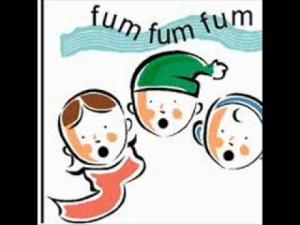
Luke’s Gospel gives us a translation puzzle that has been solved to my satisfaction and that of most Bible scholars. The traditional “Glory to God in the highest, and on earth peace, good will toward men” is out. Newer translations replace it with “Glory to God in the highest, and on earth peace to those on whom his favor rests.” (New American Bible) This is one of my favorite Bible passages. I add it to my praying of the Rosary when I come to the Third Joyful Mystery, the Incarnation. But the new translation takes some getting used to, especially since we still have the old in song and Christmas cards. Besides that, it raises a question in my mind: Who gets God’s favor? I like to think that, whoever it is, it includes me; but does it?
Translation: The manuscript evidence
An online article explains that the new translation depends on getting the original Greek text right. (This article is from the conservative Christian Apologetics Research Ministry, CARM. I have some disagreements with them, but they’ve done good text analysis in this case.)
Figuring out what the Gospel writers actually wrote is complicated. We have many manuscripts, some dating as far back as the fourth century, but no original texts. The ones we do have are copies of copies that differ in many details. In this case we’re looking at the Greek words translated men (better, people) and good will or favor. Manuscripts differ by one letter in the word for favor. With that letter “good will” (or favor) changes to “of good will” (or favor). Translating the phrase, it’s the difference between
Peace, good will to people.
And
Peace to people of favor.
Whether you say “good will” or “favor,” it’s God’s favor given to people. For better English, you have something like the translation Catholics use in church:
Glory to God in the highest, and on earth peace to those on whom his favor rests. (Luke 2:14, New American Bible)
Of the manuscripts we have, the ones that contain the extra letter, giving us “of favor,” are on the whole earlier than those without it. The manuscript evidence favors (!) the new translation. There’s also another kind of evidence.
We can look at how “favor” and “of favor” show up in other places in and outside of Scripture. In Psalms people “who hope in you” are blessed “with a shield of favor.” (Psalm 5:12) And a non-biblical text from the Dead Sea Scrolls says God’s mercy “is toward the sons of thy goodwill.” So first century Jews would have been used to the “of” form of the word for God’s favor.
Who gets God’s favor? Is it I?
All the evidence together shows that the new translation is as close to Luke’s original as we can probably get. But it raises a serious question for me. Who gets God’s favor? I always thought, and the old translation implies, that it’s everyone. The new translation, “to all on whom God’s favor rests,” implies that not everyone is so lucky.
The CARM article has a definite idea about who the lucky ones are. It’s those who believe in Jesus, those who have the gift of faith. Protestants emphasize that faith is God’s free gift, and Catholics believe the same. But I think Luke has something besides faith in mind. God’s favor can rest on people who have not been favored with God’s gift of faith. Luke gives us some clues about who those people might be.
The first clue is the folks to whom the angels give this message. They are shepherds, among the poorest and most despised people in Israel. The second clue came in the chapter just before this one in Luke’s Gospel. It’s another of my favorite Bible passages, Mary’s song of praise when visiting her cousin Elizabeth:
He has thrown down the rulers from their thrones but lifted up the lowly. The hungry he has filled with good things; the rich he has sent away empty. (Luke 1:52-53)
God consistently shows favor toward those who are least favored among us. The prophets insisted that we must do the same, and Jesus acted out that requirement perfectly and didn’t always require faith in advance.
Christmas joy, and what else?
It looks like I have to face the facts, and they are not such as I would have chosen. When the angels sang about the ones on whom God’s favor rests, they didn’t mean me. I am among those most highly favored by the world. My low middle class standing in America’s economy still puts me way above the majority of the world’s people. I have enough of favor. I am one of those who need to be pursuing favor (that is, justice) for the poor, the sick and aged, the lonely and imprisoned, those facing discrimination by law or habit, climate migrants, and generations to come, for whom Earth will not be dispensing its favors as bounteously as it has for my generation.
The world rejoices in God’s favor announced at the first Christmas. For some of us, though, Christmas is a time for more than rejoicing.











